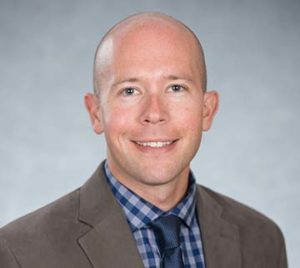
Readings:
First Reading: Isaiah 53:10-11
Psalm: 33:4-5, 18-19, 20, 22
Second Reading: Hebrews 4:14-16
Gospel: Mark 10:35-45
It is difficult not to think about “those who are recognized as rulers” in the modern sense today and the ways in which Jesus’s observations about the way power is deployed by those in civil, social, cultural, and ecclesial authority lord it over women and men. Within the context of the United States (though it’s also true elsewhere around the globe) we are experiencing renewed crises of leadership and power, both within the church and beyond it. Oftentimes the real problems of our age—cover-up of abuse, sexual harassment or assault, financial impropriety, and so on—can be tied to the manner in which power is utilized by those in positions of authority. In today’s Gospel, Jesus calls each of us to look at ourselves and the situations around us in order to assess how authority is being exercised and how leadership styles must change to align with God’s will.
Among other things, this Sunday marks the close of the Synod of Bishops on Young People. In preparation for this three-week-long meeting, the bishops solicited insight from young adults the world over. Hundreds of young adults, representatives of dioceses from every continent, gathered in Rome this past March to draft a working document that portrayed the “joys and hopes, griefs and anxieties” (Gaudium et Spes, no. 1) of the young adults of our age. Among the most pressing pastoral issues, the young people named in their report to the Synod was the deep need they feel for an “authentic church” in which its leaders embrace a humble, honest, and forgiveness-seeking approach to accompanying young people today.
Too often, the young adults noted, leaders in the church act with a “father knows best” disposition and a “we’ve always done it this way” attitude that amounts to the overlooking, silencing, or dismissing of the experiences, perspectives, and hopes of young people. In this sense, many church leaders take the power entrusted to them by virtue of their office and “lord it over them.” Rather than readily admitting one’s errors too many church leaders offer self-justifying excuses and eschew direct responsibility.
Young people are not the only Christians who recognize the disconnect between the vision of leadership Jesus presents in the Gospel and the actual exercise of leadership we frequently witness in our day-to-day experience. Women of all ages are right to note the many ways their experiences and insight at best fall on deaf ears and at worst are ignored or dismissed. People of many other communities underrepresented in church leadership also cry out to be recognized and welcomed in a church that so often talks the talk of “all are welcome,” but sadly fails to walk the same walk.
This Sunday, as we reflect on the discussions and issues raised at the Synod and in our daily experiences, Jesus invites us to renew our vision of leadership and lays before us the path God intends. Rather than making one’s “authority over them felt,” we are told: “whoever wishes to be great among you will be your servant; whoever wishes to be first among you will be the slave of all. For the Son of Man did not come to be served but to serve and to give his life as a ransom for many.”
Christ shows us the fullness of who God is and how God leads: by self-sacrificial love and service. It is this model that has been placed before each of us to follow. Therefore, for any of us to bear the name of Christ and exercise leadership any other way is to be a living contradiction of the Gospel.
Fr. Daniel P. Horan, OFM
Assistant Professor of Systematic Theology and Spirituality